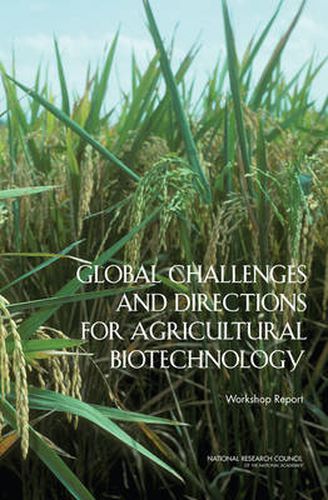Readings Newsletter
Become a Readings Member to make your shopping experience even easier.
Sign in or sign up for free!
You’re not far away from qualifying for FREE standard shipping within Australia
You’ve qualified for FREE standard shipping within Australia
The cart is loading…






Many developing countries are exploring whether biotechnology has a role in addressing national issues such as food security and environmental remediation, and are considering whether the putative benefits of the technology - for example, enabling greater agricultural productivity and stability in the food supply - outweigh concerns that the technology might pose a danger - to biodiversity, health, and local jobs. Some policy leaders worry that their governments are not prepared to take control of this evolving technology and that introducing it into society would be a risky act. Others have suggested that taking no action carries more risk, given the dire need to produce more food.This book reports on an international workshop held to address these issues. Global Challenges and Directions for Agricultural Biotechnology: Mapping the Course, organized by the National Research Council on October 24-25, 2004, in Washington, DC, focused on the potential applications of biotechnology and what developing countries might consider as they contemplate adopting biotechnology. Presenters at the workshop described applications of biotechnology that are already proving their utility in both developing and developed countries.
$9.00 standard shipping within Australia
FREE standard shipping within Australia for orders over $100.00
Express & International shipping calculated at checkout
Many developing countries are exploring whether biotechnology has a role in addressing national issues such as food security and environmental remediation, and are considering whether the putative benefits of the technology - for example, enabling greater agricultural productivity and stability in the food supply - outweigh concerns that the technology might pose a danger - to biodiversity, health, and local jobs. Some policy leaders worry that their governments are not prepared to take control of this evolving technology and that introducing it into society would be a risky act. Others have suggested that taking no action carries more risk, given the dire need to produce more food.This book reports on an international workshop held to address these issues. Global Challenges and Directions for Agricultural Biotechnology: Mapping the Course, organized by the National Research Council on October 24-25, 2004, in Washington, DC, focused on the potential applications of biotechnology and what developing countries might consider as they contemplate adopting biotechnology. Presenters at the workshop described applications of biotechnology that are already proving their utility in both developing and developed countries.